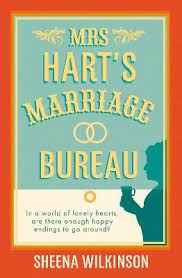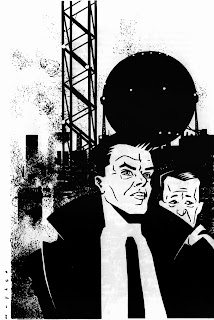It feels very odd to be posting on the 29th day of the month. Ever since I first blogged for ABBA – March 2014 if anyone’s interested, it’s been the 13th. Easy to remember (and as far as I know I’ve only forgotten twice in eleven years). Sometimes I got to blog on Friday 13th, and once a year it fell on St Lucy’s Day, which was always an invitation to write about light at a dark time of year.
But here I am on the 29th! Out of my comfort zone. Because of the reshuffle of ABBA dates, I haven’t blogged for ages, there having been no 29th February this year. (Oooh, this means that three out of four years I’ll get a month off, and every fourth year I’ll get to blog about Leap Day. Yay!) And it doesn’t matter when I blog: the fact is, Awfully Big Blog Adventure gives me a real sense of community in an often fractured world. There are writers I’ve never met, who feel like friends because we read each other’s posts, writers whose books I will seek out because they are Scattered Authors.
I am very much a creature of routine and habit, and though I love change and adventure to some extent, I do fear the unknown. I am especially pusillanimous about techy things: that’s probably why it took me until 2023 to get a website.
Another thing I’ve been scared of is self-publishing. No matter how many talks I have been to from really successful and savvy indie authors; no matter how many times other writers have waxed lyrical about having complete control over every aspect of the process; no matter how many self-published books I see with much better sales than I have had for ten traditionally published books, it’s always felt scary, and I’ve always thought I wouldn’t do it. Even when one of my good writing friends, Rachel Ward, self- published the excellent, beautifully produced Write Your Cozy Mystery: a practical, how-to guide, I still couldn’t imagine myself managing to actually make a book happen – writing, after all, is the easy bit!
 |
| one traditionally published, one self-published |
But later this year I am going to self-publish a novel – a much scarier leap for me than changing my blogging day. And it’s mainly thanks to ABBA – or at least to the Scattered Authors.
Here’s how.
As we all know, Scattered Authors get about a bit. One place where many of have scattered to over the years has been Charney, the annual, much-missed retreat in Oxfordshire. It was at Charney where I met Linda Newbery, Celia Rees and Adele Geras, who run the excellent, eclectic review blog Writers Review, which I’ve occasionally reviewed for, and was interviewed by in 2023: http://reviewsbywriters.blogspot.com/2023/04/special-feature-q-with-guest-sheena.html
A month or so ago I read in The Bookseller that Writers Review was branching out into publishing, bringing out three books this April: The One True Thing, a new adult novel from award-winning Linda Newbery, and reissues of two highly-acclaimed novels – The Poet’s Wife by Judith Allnatt, and David: The Unauthorised Autobiography by Mary Hoffmann. https://www.thebookseller.com/author-interviews/author-interviews/testing-the-waters-linda-newbery-makes-her-first-foray-into-self-publishing
All three authors are widely published, hugely experienced and highly respected. Reading about their decision to self-publish these novels as a Writers Review initiative made me think about a book of mine, finished this time last year but languishing on my hard drive ever since. If they could do it, maybe I could too?
My first adult novel, Mrs Hart’s Marriage Bureau, a 1930s feminist feelgood story, was published in 2023 by HarperCollins Ireland and in UK paperback in 2024 – a year and a day ago, in fact. Readers loved it; reviewers called it ‘a gem’ (Irish Independent) and ‘briskly witty, reminiscent of the best inter-war fiction’ (Irish Times) and the majority of the two hundred Amazon reviews (mostly five star) hoped for a sequel. In fact, the acquiring editor, at our one and only meeting, waxed very enthusiastically about a sequel or even a series.
But it was a one-book deal and that passionate editor moved on, as is the way in publishing, and though Mrs Hart had clearly struck a chord with readers, there simply weren't enough of them to justify HarperCollins offering for the sequel. So they didn’t.
And yes, it might have been more sensible to wait for a contract before I wrote it, but the fact is, like readers, I wanted to know what happened next! And as I wrote Miss McVey Takes Charge, set in 1936, I was feeling optimistic and determined. This book would see the light of day. To anyone who enquired, I said blithely that if HarperCollins didn’t take it I would jolly well publish it myself. (I said it very fast, because to be honest I was terrified of the prospect.)
There seemed no point in sending the book elsewhere: publishers are unlikely to want the sequel to a book published by another company. I did look at reworking it to make it less like a sequel, but that was like trying to turn my dog into a cat.
I hoped that, if I did nothing for a year, something amazing might happen to make HarperCollins change their minds – Mrs Hart might be optioned for TV or go viral for some reason. This didn’t happen, but when I read about the Writers’ Review initiative, it spurred me on to start thinking seriously about taking that kind of action myself.
And then something lovely happened! Having engaged in a little chat on social media about the trend for respected, successful writers to self-publish, I admitted that I too was considering self-publishing and explained about Miss McVey takes Charge. The next day I had a message from Linda Newbery, inviting me to bring the book to Writers Review! I will still be self-publishing, but with the support and cooperation of writers I really like and trust. And I know that the Writers Review endorsement will give the book a stamp of approval and respectability, and that they will support my book, as I will support theirs.
 |
| three splendid, and beautifully-produced novels from Writers' Review |
Miss McVey Takes Charge will publish late in 2025. I need to leave some breathing space around my forthcoming school story sequel, which publishes in September, and it gives me time to build up (I hope!) some interest in the book. I’ve invested in engaging a really first-class editor and cover illustrator, both of whom have worked on my traditionally published books. I don’t expect to sell thousands of copies or to make any money; it’s not about that. It’s about giving the readers who bought, loved and reviewed the first book the sequel they – and I – want. It’s about taking control in a world where writers’ words are blatantly stolen to train robots, as Claire Fayers blogged about on here only yesterday.
And – because without the invitation from Writers’ Review I might still be dithering about this – it’s about community and solidarity, and writers helping each other out. Because that’s what matters.








































